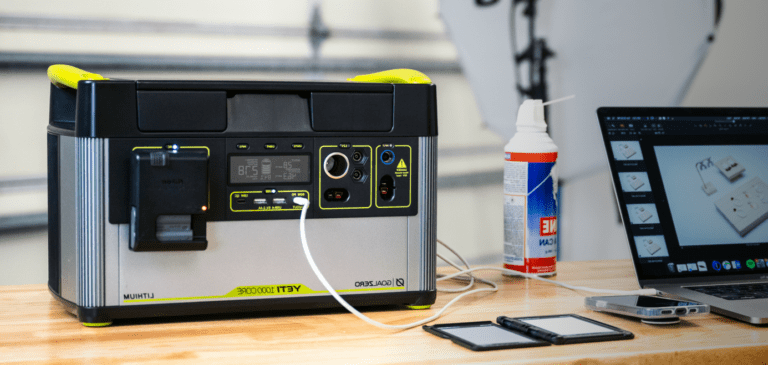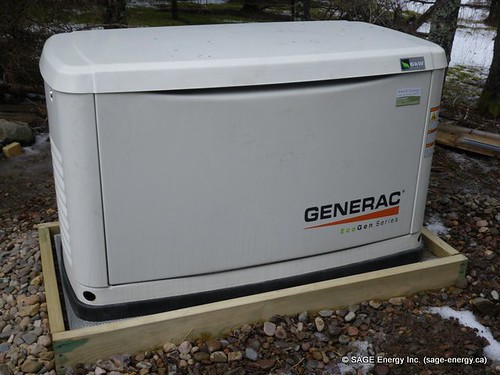What safety precautions should I take when using a portable generator?
When it comes to portable generators, I know how important it is to prioritize safety. In this article, I’ll discuss the precautions necessary for a worry-free experience.
Ventilation and carbon monoxide safety are top concerns, so keep the generator in a well-ventilated area and never use it indoors.
Use the right fuel, store it safely, and follow electrical safety guidelines.
Regular maintenance is key too.
By following these precautions, you can enjoy the convenience while protecting yourself and others.
Key Takeaways
- Keep the generator in a well-ventilated area, away from windows and doors.
- Always use the correct type of fuel for your generator and store it in an approved container.
- Never plug the generator into a wall outlet and use outdoor-rated extension cords for connecting appliances.
- Follow the manufacturer’s instructions for regular maintenance and ensure the generator is in good condition before use.
Ventilation and Carbon Monoxide Safety
When using a portable generator, I need to ensure proper ventilation and carbon monoxide safety. Carbon monoxide poisoning is a serious risk when operating a generator. To prevent this, it’s crucial to keep the generator in a well-ventilated area, away from windows and doors. Never use a generator in an enclosed space like a garage, shed, or basement.
It’s also important to have a working carbon monoxide detector in your home if using a generator. Proper ventilation is key to avoiding CO poisoning. By following these precautions, I can ensure the safety of myself and others when using a portable generator.
Fuel Safety
I always use the correct type of fuel for my generator to ensure fuel safety. Using the wrong fuel can damage the generator and pose a safety risk. It’s important to check the manufacturer’s instructions or the generator’s manual to determine the appropriate fuel type.
Additionally, fuel container safety is crucial. I make sure to store fuel in an approved container that’s specifically designed for flammable liquids. These containers should be kept away from heat sources and in a well-ventilated area.
It’s also important to turn off the generator and allow it to cool down before refueling. When handling fuel, I take caution to prevent accidents and spills.
Adhering to these fuel safety guidelines helps to minimize risks and ensures the safe operation of my portable generator.
Electrical Safety
Using heavy-duty cords and following electrical safety precautions are essential for ensuring the safe operation of my portable generator. Here are some important steps to take:
- Proper grounding: Ensure that the generator is properly grounded to prevent electrical shocks. This involves connecting the generator to a grounding rod or a suitable grounding system.
- Overload protection: Avoid overloading the generator by connecting only the necessary appliances and devices. Overloading can damage the generator and pose a fire hazard.
- Use outdoor-rated extension cords: Use extension cords that are specifically designed for outdoor use. These cords should be in good condition and capable of handling the electrical load.
- Employ a transfer switch: A transfer switch allows for safe and easy connection of the generator to the electrical system of the house. It prevents dangerous power flow and protects against backfeed.
- Follow safety precautions: Avoid electrical shock by keeping the generator away from water sources and following all safety guidelines provided by the manufacturer.
Maintenance
To ensure the optimal performance and longevity of my portable generator, it’s important to regularly perform maintenance tasks such as oil changes, cleaning, and checks for wear and tear.
Regular generator cleaning is essential to remove debris and dirt that can clog the air filters and affect its efficiency.
Additionally, I should inspect the generator for any signs of wear and tear, such as loose wires or damaged parts, and address them promptly.
While I can handle basic maintenance tasks myself, it’s advisable to seek professional help for repairs and servicing. They have the expertise to identify and fix any underlying issues that may not be evident to me.
Safe Usage
In order to ensure safe usage of a portable generator, it’s important to follow the manufacturer’s instructions and avoid overloading the generator or exceeding its power output. To further enhance safety, consider the following guidelines:
- Generator placement: Keep the generator in a well-ventilated area, away from windows and doors. Avoid using it in enclosed spaces like garages or basements.
- Power consumption limits: Be mindful of the appliances you connect to the generator. Avoid using appliances that consume excessive power to prevent overloading.
- Avoid wet conditions: Don’t use the generator in wet or rainy conditions to prevent electrical hazards.
- Regular maintenance: Follow the manufacturer’s instructions for maintenance to ensure safe operation.
- Keep it dry: Protect the generator from moisture and keep it dry at all times.
Carbon Monoxide Detection
I should have a carbon monoxide detector in my home, as it’s a compound noun and an important safety precaution.
Carbon monoxide poisoning can be deadly, as it’s an odorless and colorless gas that can quickly build up in enclosed spaces. Without a detector, it becomes nearly impossible to detect its presence.
The symptoms of carbon monoxide poisoning include headaches, dizziness, nausea, and confusion. In severe cases, it can lead to unconsciousness and even death.
To prevent carbon monoxide poisoning, it’s crucial to have a working detector installed near the sleeping areas of your home. This will alert you if dangerous levels of carbon monoxide are detected, allowing you to evacuate and seek medical attention promptly.
Proper Fuel Storage
Proper fuel storage is essential when using a portable generator. To ensure safety, it is important to store the fuel in a safe and approved container away from heat sources. Here are some important fuel container safety and generator refueling precautions to follow:
- Always use an approved container specifically designed for storing fuel.
- Keep the container tightly sealed to prevent any leaks or spills.
- Store the fuel container in a well-ventilated area, away from any sources of heat or flame.
- Avoid storing fuel near any electrical equipment or appliances.
- When refueling the generator, turn it off and allow it to cool down before adding fuel.
Handling Fuel Safely
One important precaution to take when handling fuel for a portable generator is to always use the correct amount of fuel to prevent accidents.
It’s essential to follow fuel storage guidelines and fuel handling precautions to ensure safety. When storing fuel, it’s crucial to use an approved container and keep it away from heat sources.
Before refueling, make sure to turn off the generator and let it cool down. When handling fuel, exercise caution to avoid spills or leaks that could lead to fires or explosions.
Electrical Connection Precautions
When using a portable generator, it’s important to follow electrical connection precautions to ensure safety. Here are some key precautions to keep in mind:
- Proper electrical grounding precautions should be taken to prevent electric shock and protect against electrical hazards.
- Use only safe extension cords that are rated for outdoor use and can handle the power load of your appliances.
- Avoid overloading the generator by using heavy-duty cords and avoiding the use of multiple appliances on a single cord.
- Make sure to inspect the cords for any damage or wear before connecting them to the generator.
- Always plug appliances directly into the generator or use a transfer switch to prevent dangerous power flow.
Regular Maintenance Procedures
I make sure to regularly perform maintenance procedures on my portable generator to ensure its proper functioning and safety. Regular maintenance is essential for preventing generator malfunctions and potential safety hazards.
One common mistake that people make is neglecting to check the oil level and perform oil changes. Low oil levels can cause engine damage and lead to generator failure.
Another common maintenance mistake is overlooking the air filter. A clogged air filter can restrict airflow and cause the generator to overheat.
It’s also important to inspect the spark plug regularly and replace it if necessary.
Additionally, keeping the generator clean and free from debris is crucial for optimal performance.
Conclusion
In conclusion, when using a portable generator, it’s crucial to prioritize safety.
By following proper ventilation and carbon monoxide safety measures, using the correct fuel and storing it safely, practicing electrical safety, conducting regular maintenance, and using the generator in a safe manner, you can ensure a worry-free experience.
Taking these precautions won’t only protect yourself but also those around you, allowing you to enjoy the convenience of a portable generator without any potential hazards.


